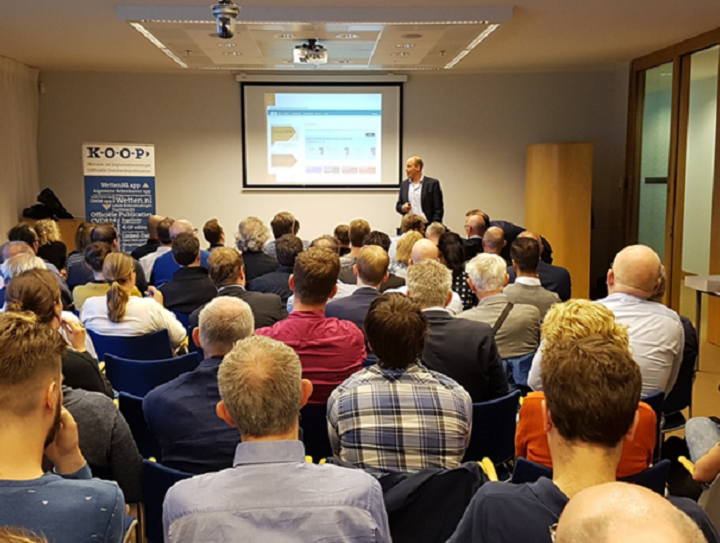Insights from data.overheid.nl
This article was written by Jelle Verburg, the product owner of the Dutch National Open Data Portal (data.overheid.nl).

“I am searching for a dataset with the total amount of tourists visiting the Amsterdam region every month for the last three years.”
The above question is an example of the requests we frequently receive on data.overheid.nl. On the portal, re-users of data can request open data by submitting a data request. The data.overheid.nl team supports the re-users in finding the requested data.
My name is Jelle Verburg and I am working as product owner for the Dutch National Data Portal: data.overheid.nl. Together with my team, I work on all aspects of government data in the Netherlands. It is both an honor and a pleasure to write one of the first Country Insights posts for the European Data Portal and to share with the European data community the developments of open government data in the Netherlands.
In the beginning of this text I demonstrated a data request. On data.overheid.nl we often receive data requests like the aforementioned example. The data.overheid.nl team mediates these requests in finding the perfect match between the demand and supply of government data. Almost 15,000 datasets from the government are available on the data portal. This data varies from statistical data to mobility data and from education data to juridical data. The available datasets come from different domains and have been made available by government bodies such as the Central Office for Statistics (CBS), the Dutch Cadastre, the agency for mobility and infrastructure (Rijkswaterstaat), the agency for education and loans (DUO), the vehicle register (RDW) and many others. In the past few years, a lot of work has been done in making data available for public use. But who are these re-users of public sector data? And what is the impact of datasets that are becoming available as open data?
The policy on the re-use of public sector data in the Netherlands is embedded in/part of the Data Agenda Government.This agenda sets out how data can be used (even) better to improve policy-making and resolve social issues. The data agenda is set up especially for public sector data with specific attention to the protection of public values and fundamental rights.
With regards to this policy, the data.overheid.nl is working on creating more insight into the impact of data. For this purpose, we look at French model as an example. We will work on providing more insight into the impact of data by creating and facilitating data communities on the data portal. These communities are directed at specific domains. In the Netherlands we will be starting with data communities on the following topics: mobility, education and our (open) data community. To support these data communities, we provide a platform where all datasets within a specific domain can be gathered at one central location. All the datasets that relate to the topic can be stored in this place. Bringing related data together at a single location also enables the opportunity to gain more insight into the applications and use of data, into the impact of open data, and into channeling re-users interaction on data. This way government bodies will be able to align the quality and the supply of data, and the demand for data from the re-users. The data community will gain insight into the usage and demand for data, which eventually will lead to monitoring and evaluating the impact of open data. In the community, both open, shared and closed data can be presented. The open datasets will be available without any restrictions for all re-users. By enclosing information on shared and closed datasets as well, we will be able to demonstrate which data is collected, the legal basis for data processing, which organization owns the data, and under which conditions the re-use of data is permitted. This scenario may lead to specific requests for data sharing.
In the data community approach the motto is “digital when possible, human interaction where necessary”. Operational activities are automated or carried out online as much as possible and if desirable. However, offline meetings are an essential part in supporting the community. The community will try to connect with already existing meetings, events, hackathons, and other data related activities of the involved parties.
When talking about data, a lot is happening in the Netherlands. Through the National Open Data Portal, we support initiatives involving data and data sharing through means of our data communities. The use of the concept of data communities actively contributes to the Dutch strategic action plan on Artificial Intelligence (AI). We participate in the Dutch National AI Coalition and provide datasets to AI entrepreneurs. Where possible, we will also contribute to the Data Sharing Coalition. I hope that in a few months I can tell you more about this interesting upcoming initiative.
